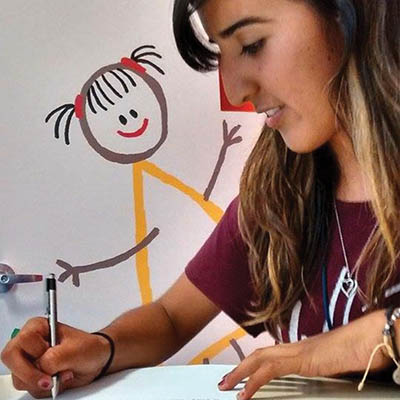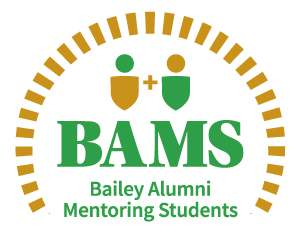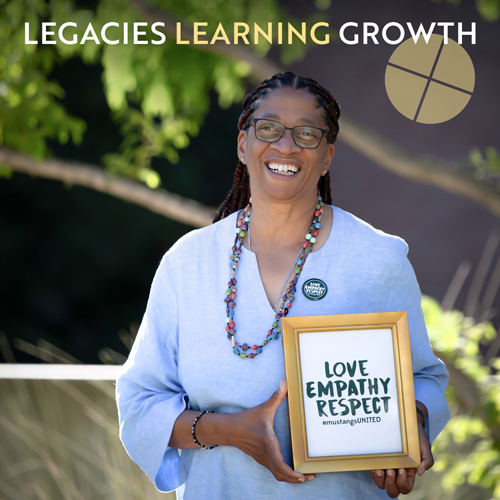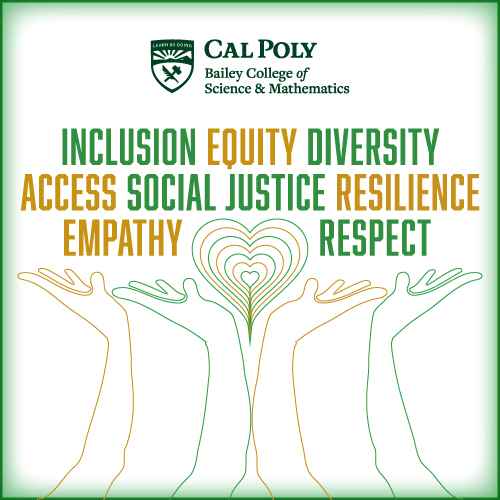Overcoming Barriers

Stephanie Gomez-Rubalcava explores life with a passion for helping others discover their full potential.
Born in Santa Maria, Calif., Stephanie Gomez-Rubalcava (Kinesiology, ’18) spent her first eight years in Mexico, a country that will always feel like home and that shaped her career aspirations. It was in Aguascalientes, Mexico, that “I fell in love with OT,” she said.
“WHEN I’M AN OT, I’M NOT JUST GOING TO TALK TO PARENTS ABOUT WHAT THEIR CHILD IS DOING RIGHT OR WRONG BUT ALSO ABOUT THEIR LIFE AND HOW THEY CAN CHANGE IT.”
—STEPHANIE GOMEZ-RUBALCAVA
An important but little-known profession, OT, or occupational therapy, helps people with physical or mental disabilities learn how to perform everyday tasks, giving them a higher degree of independence.
Gomez-Rubalcava knew she wanted a career that focused on helping others and credits her family background with influencing her direction in life. “My parents have always taught me service to others and the value of family,” she said.
After learning about OT from advisors and faculty members at Cal Poly, Gomez-Rubalcava was intrigued, but she didn’t yet know whether it was the path for her. While visiting family in Aguascalientes after her first year at Cal Poly, she found the perfect opportunity to test out OT.
She volunteered at the Teletón Children's Rehabilitatin Center, a charity that helps low-income children with disabilities learn the skills they need to eat or get dressed by themselves. Growing up, she had seen TV ads for Teletón regularly.
MY PARENTS HAVE ALWAYS TAUGHT ME SERVICE TO OTHERS AND THE VALUE OF FAMILY.
—STEPHANIE GOMEZ-RUBALCAVA
Assigned to do arts and crafts with the kids waiting for their appointments, Gomez-Rubalcava was impressed when she saw young boys and girls gain greater independence by learning to hold utensils or fasten buttons. When she returned to Teletón for a second summer to shadow one of the occupational therapists, she especially connected with Marisol, an 8-year-old girl who came to the center using a walker.
Under professional guidance, Gomez-Rubalcava constructed a brace out of plastic, cotton and fabric that would allow the young girl to walk on her own. As Marisol returned week after week to receive therapy and learn how to use the brace, Gomez-Rubalcava marveled as the child’s ability to walk unaided improved.
“I was like, wow, I was a part of that process that helped her walk better. She was so happy and her grandma was so happy. It made a real difference in their lives,” Gomez-Rubalcava said.
When she returned to Cal Poly that summer, an undergraduate research opportunity set her on the road to turn her newfound passion into a reality.



A Frost Research Fellowship allowed Gomez-Rubalcava to work as a research assistant for Professor Suzanne Phelan’s study examining how diet and exercise during pregnancy affect a woman’s risk for gestational diabetes and the baby’s risk of obesity. That first summer, she enrolled women who were patients at Community Healthy Centers of the Central Coast as participants in the study.
As she continued to work on the study, Gomez-Rubalcava became involved in all aspects of the research process, from writing grants to going into the field and collecting data such as height and weight measurements. These experiences gave her a broader understanding of how to treat her future patients.
“When I’m an OT, I’m not just going to talk to parents about what their child is doing right or wrong but also about their life and how they can change it,” she said. “The whole family structure makes a difference. I learned that doing research here, and I’ll always be grateful to Cal Poly for that.”
Gomez-Rubalcava’s native Spanish was a crucial skill as many of the study participants only spoke Spanish. In the course of the research, she learned an entirely new vocabulary specific to health and medicine. She also saw a need for OT to be offered in Spanish and other languages for underserved populations on the Central Coast. With her newfound skills and vocabulary, she’s well-positioned to provide those resources in the future.
“No matter where we humans are, we find a way to overcome barriers,” Gomez-Rubalcava said. “That’s what OT does. It helps people overcome barriers physically and emotionally. I almost flunked third grade. Look at me now — I’m a college graduate from Cal Poly and looking forward to bigger and better things.”
This year, Rubalcava is working as a full-time research assistant in Cal Poly’s Center for Health Research while she applies for OT graduate programs beginning in fall 2019. Her research experiences will be a key factor strengthening her applications.
“If I wouldn’t have come to Cal Poly, I wouldn’t have had these opportunities,” she said. “Every year something better has happened at Cal Poly."
Read more about Cal Poly in the Americas in Wondering at the World





